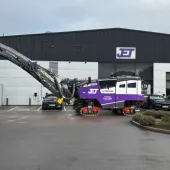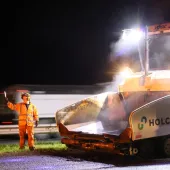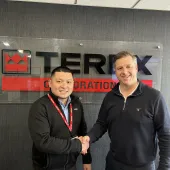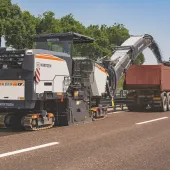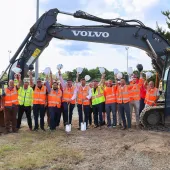Milling Asphalt Layers Separately
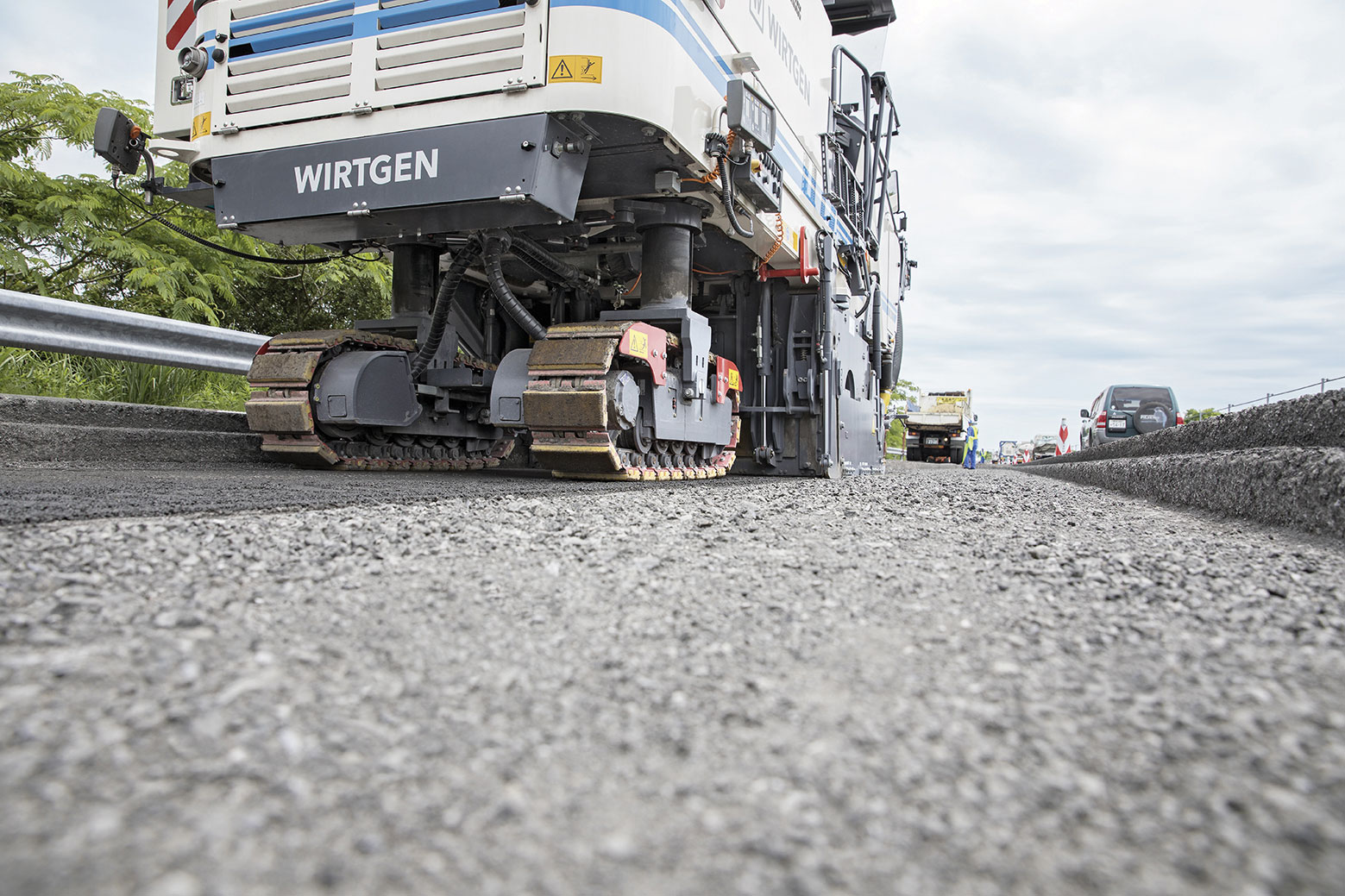
First published in the January 2019 issue of Quarry Management
During rehabilitation work near Tokyo, a Wirtgen W210 large milling machine removed the surface and binder courses on the Joban Expressway in individual layers, making it easier to separate the milled material according to mix type and reuse it more purposefully and economically.
The city of Mito, located around 140km north-east of Tokyo, is home to Kairakuen, a shining example of a perfect landscape garden and one of the most famous of its kind in Japan. Professional maintenance of the garden is essential – and this is also true of roads, which need to be rehabilitated from time to time. For the selective removal of the pavement on the Joban Expressway, between Mito and Tokyo, contractors Unite Co. Ltd elected to use the latest milling technology from Wirtgen – a 2m front-loading W210 cold milling machine.
While traffic continued to flow on one lane, the powerful 500kW large milling machine, equipped with a vacuum cutting system (VCS) developed by Wirtgen, worked on removing the damaged sections. During the milling process, fine material particles and water vapour are produced in the milling drum aggregate. The VCS applies negative pressure to suck the particles and water vapour into the milling machine’s short conveyor channel directly at the milling unit, which is additionally sealed. A suction hood located above the conveyor channel draws the particles into two hoses that lead directly to the long conveyor of the loading system.
To repair cracks in the road pavement, the large milling machine in Mito was equipped with a standard milling drum. After removal of the 10cm thick surface course, the W210 machine milled the binder course to a depth of 15cm in a second pass. Because the different types of mix were separated, it was possible to return both layers to the material cycle for reuse in line with their technical suitability and qualitative characteristics. According to Wirtgen, this selective reclaiming of the material alone delivers clear ecological and economic benefits, but when intelligent milling technology is factored in too, their cold milling machines not only optimize the overall rehabilitation process, but also the cost-effective reuse of the RAP in the asphalt mixing plant.
Load-dependent water sprinkling plays a key role in this. The water required for cooling the cutting tools is regulated in accordance with the engine load and milling speed. As the water system is automatically switched on when the milling drum is lowered into working position and automatically switched off when the milling work is stopped, water consumption can be cut considerably – specifically, up to 20% of the water can be saved.
As a result, the service life of the cutting tools is extended, the cold milling machine requires less frequent refills and downtimes are shorter. In addition, a decisive factor in materials processing is that the residual moisture of the milled material is just 3–4% per tonne, whereas if Wirtgen milling technology is not employed, the residual moisture is generally 5%.
Less water = Less heating oil
When producing new asphalt, a simple equation applies to the drying process in the asphalt mixing plant: a 1% drier source material saves 1 litre of heating oil in the production of 1 tonne of asphalt. On top of this is a reduction in CO2 emissions due to the lower energy requirements. When processing the milled material on the Joban Expressway, some 400 litres of heating oil were saved – and in just two hours, as this was how fast Unite Co. Ltd were able to selectively and precisely remove the surface and binder courses with the W210. Site manager Koji Yamada remarked: ‘The quality of the milled surface is flawless thanks to the Level Pro levelling system – it’s the perfect base for paving and compacting the new asphalt.’
Precise milling boosts cost-efficiency of recycling
With up to 20% lower water consumption, Wirtgen milling machines help increase energy efficiency as the following applies: 1% less water in the source material = 1 litre less heating oil per tonne of asphalt during processing into recycled mix.
For the Joban Expressway site, this means:
- 800m2 area x 0.25m milling depth = 200m3 volume of RAP
- 200m3 volume of RAP x 2.47 tonnes/m3 density by volume of granulated RAP = 500 litres heating oil
Thus, the potential quantity of heating oil that can be saved in the mixing plant as a result of using the Wirtgen cold milling machine is around 500 litres.
Job site details and working parameters
Rehabilitation of the surface and binder courses of a section of the Joban Expressway between Mito and Tokyo, Japan.
Job site details
- Area of section: 800m2 (approx)
- Length of section: 250m (approx)
- Width of section: 3.425m
Working parameters
- Milling depth (step 1) – surface course: 10cm
- Milling depth (step 2) – binder course: 15cm
- Milling speed: 7m/min (approx)
- Subscribe to Quarry Management, the monthly journal for the mineral products industry, to read articles before they appear on Agg-Net.com


